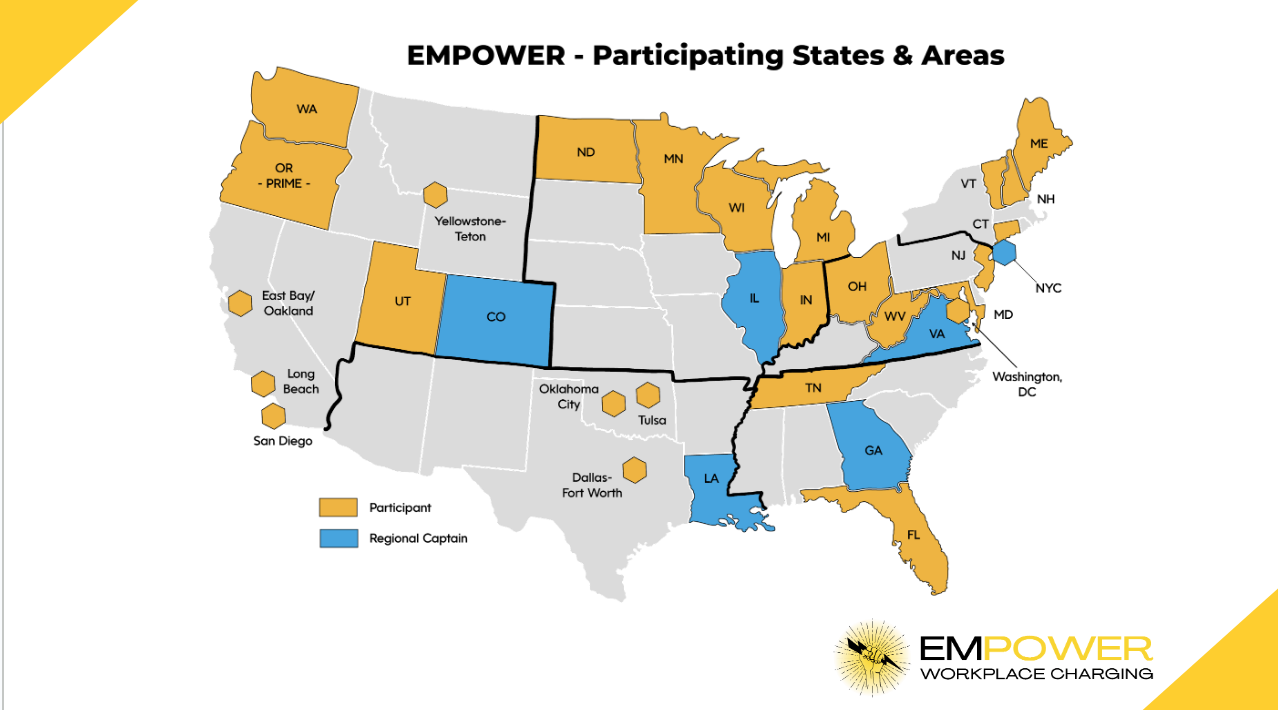
Yellowstone-Teton Clean Cities is proud of the work we’ve done in the region since 2002.
Past Projects
-
What is EMPOWER and why is it important?
One of three national workplace charging projects funded by the US Department of Energy.
Catalyzing workplace charging adoption through outreach, workplace charger install commitments, and actual installations.
The first and only equity-focused, nationwide workplace charging program in the United States.
Workplaces missed by previous or current national workplace charging initiatives may participate.
Minority, low-income, or other populations who have been traditionally underserved are poised to benefit from the most from workplace charging and electric vehicles, because;
More likely to live in multi-unit dwellings, rent, or otherwise lack access to an at-home charger.
Employees have the most to benefit economically from owning/operating an EV.
Therefore, encouraging workplaces located in disadvantaged communities, or employing members of these communities, means we are reducing barriers to electrification in communities that need it the most.
-
In 2010 the town of Jackson passed Resolution 10-19, which encourages citizens to limit unnecessary vehicle idling in public. Other local conservation groups, doctors, business owners, and citizens supported the resolution at numerous public meetings. Jackson joined numerous cities, in almost every state, that have resolutions or binding ordinances that address unnecessary idling.
Yellowstone-Teton Clean Cities (YTCC) was proud to support efforts by the Willie Neal Environmental Awareness Fund (WNEAF) and the Town of Jackson (TOJ) to adopt public idle-reduction programs. YTCC canvassed the Town of Jackson to determine which private businesses would like to support the Idle-Reduction campaign. These businesses were given the opportunity to post signs and offer brochures pertaining to the benefits of vehicle idle reduction.
YTCC’s participation in this program included: marketing, outreach and programmatic support to reach community members.
-
Vision
To provide citizens the knowledge and tools to make informed transportation decisions.
Purpose
To provide teachers (formal and informal), non-profit leaders and community leaders with relevant, accurate and accessible educational materials to teach alternative transportation fuels and vehicle technologies.
Why
The transportation sector accounts for 67 percent of total U.S. petroleum use, which amounts to 27 percent of the total U.S. greenhouse gas emissions (GHG), according to the Environmental Protection Agency (EPA). The burning of fossil fuels releases greenhouse gases and other pollutants, which contribute to climate change and air pollution. Alternative fuels and vehicles reduce greenhouse gas emissions and increase energy security. Air pollution is scientifically linked to several health problems such as aggravation of respiratory and cardiovascular disease and decreased lung function. With increasing access to cleaner fuels, more efficient technologies and effective conservation strategies to reduce petroleum use, this curriculum serves as an impartial advocate to provide communities the education necessary for citizens to make informed transportation decisions. This curriculum was partially funded through the Environmental Protection Agency’s Environmental Education Grant. The Environmental Education Grants Program, sponsored by EPA’s Office of Environmental Education (OEE), provides financial support for projects which design, demonstrate and/or disseminate environmental education practices, methods and/or techniques. The purpose of the Environmental Education Grants Program is to increase public awareness and knowledge about environmental issues, enhance critical-thinking, problem-solving and decision-making skills when considering environmental issues, provide the public with the skills needed to weigh various sides of an environmental issue and take responsible actions.
If you are interested in receiving the curriculum, please reach out to the YTCC team.



